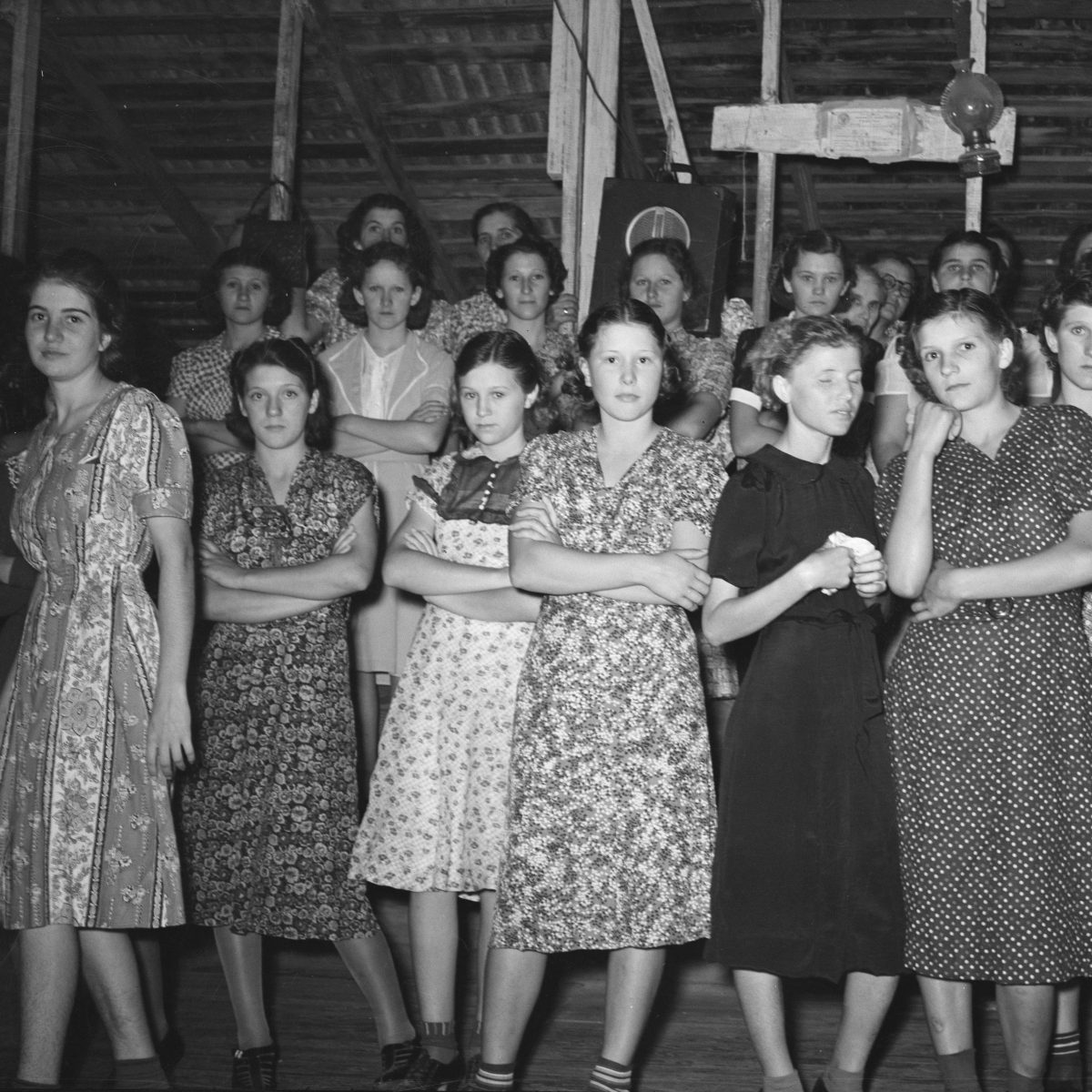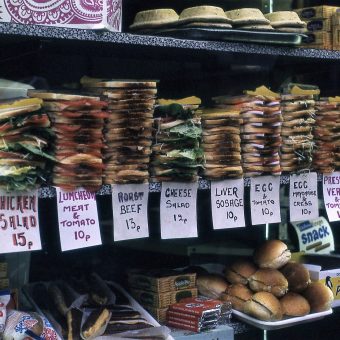These photographs were taken by Russell Lee as part of the Farm Security Administration and now kept at the Library of Congress. The Cajun Fais do-do was at Crowley in Louisiana as part of the National Rice Festival then in its second year in 1938. It’s now called the International Rice Festival.
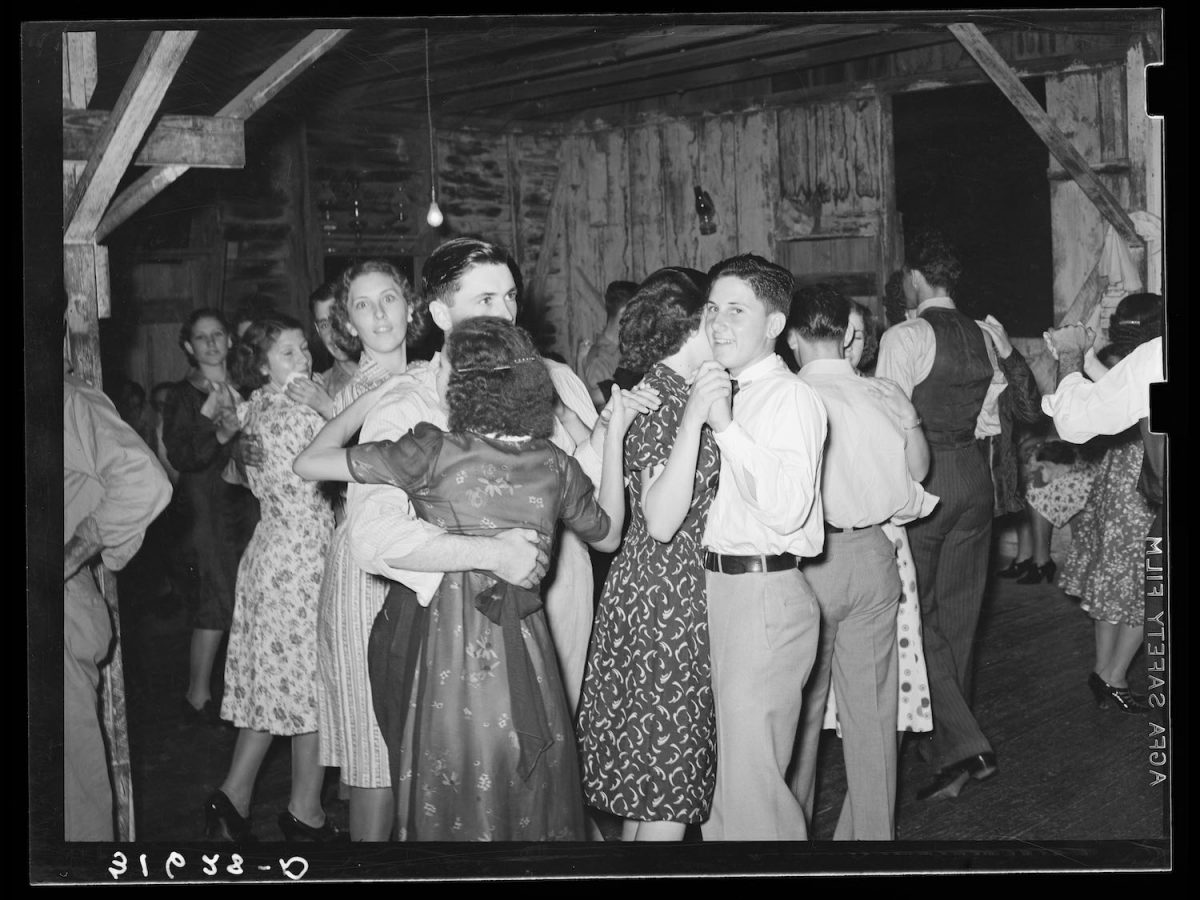
Fais do-do near Crowley, Louisiana, Russell Lee, October 1938
According to Jushua Clegg Caffery the term ‘Fais do-do’ (do is pronounced dough) refers to a public dance of some sort often held on a Sunday afternoon. The term is often said to have evolved from the practice of older relatives lulling babies to sleep in the ‘Parc aux petits’ – a room for young children in the back of Louisiana dance halls. Caffery offers an alternative however and one that is almost certainly correct. He writes:
There is another explanation, however, that has been overlooked. In various folk dancing traditions throughout America and Europe, the contra dance call/step dos-à-dos, from the French meaning “back to back,” gave rise to a diversity of vernacular terms. For instance, in Western square dancing, dos-à-dos transmuted into “dosado,” and remains a popular dance step and call to this day. In fact, www.dosado.com is the central online hub for contemporary Western square dancing. Similarly, in English, “dos à dos” became “do si do,” a familiar call retained in a number of Anglo-American folk songs and dance traditions.
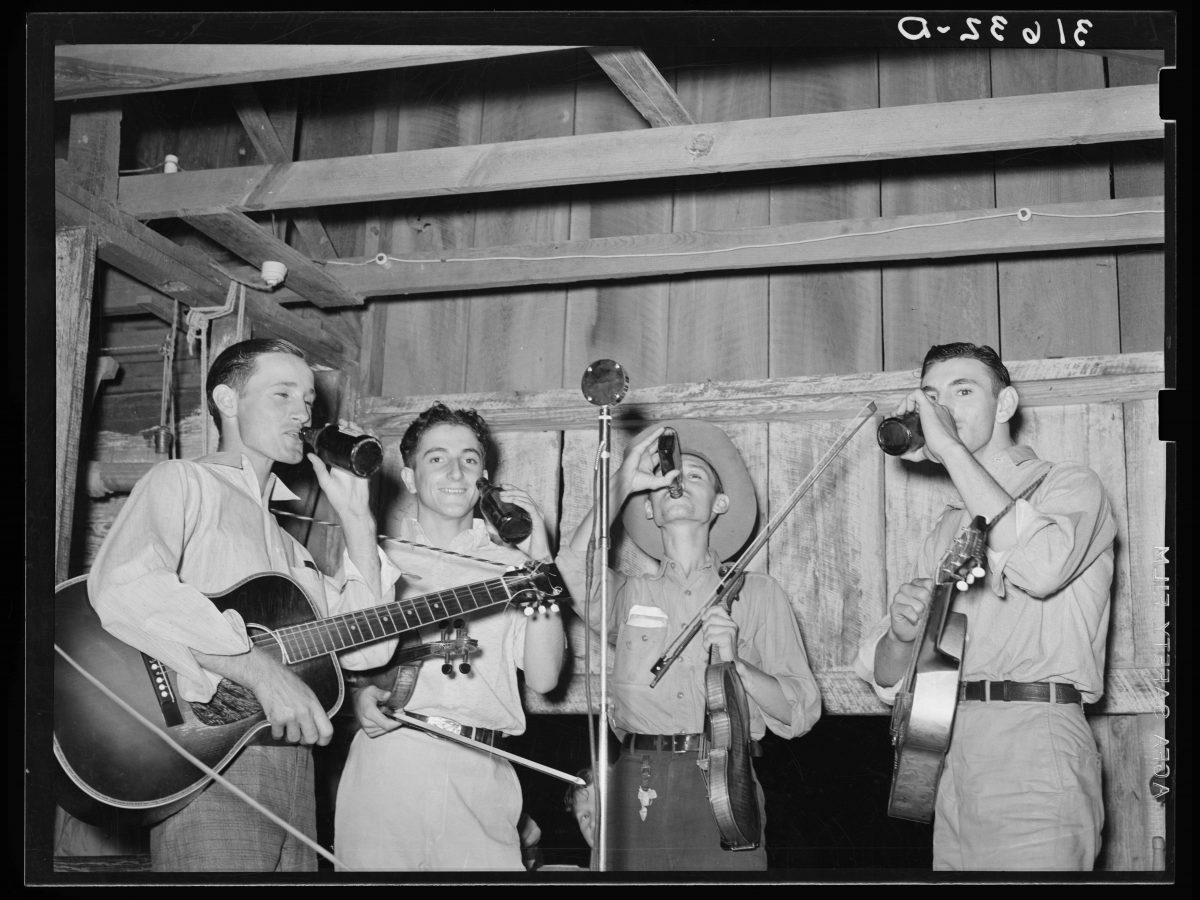
Cajun orchestra for the Fais do-do. Having a break with drinks, Russell Lee, 1938
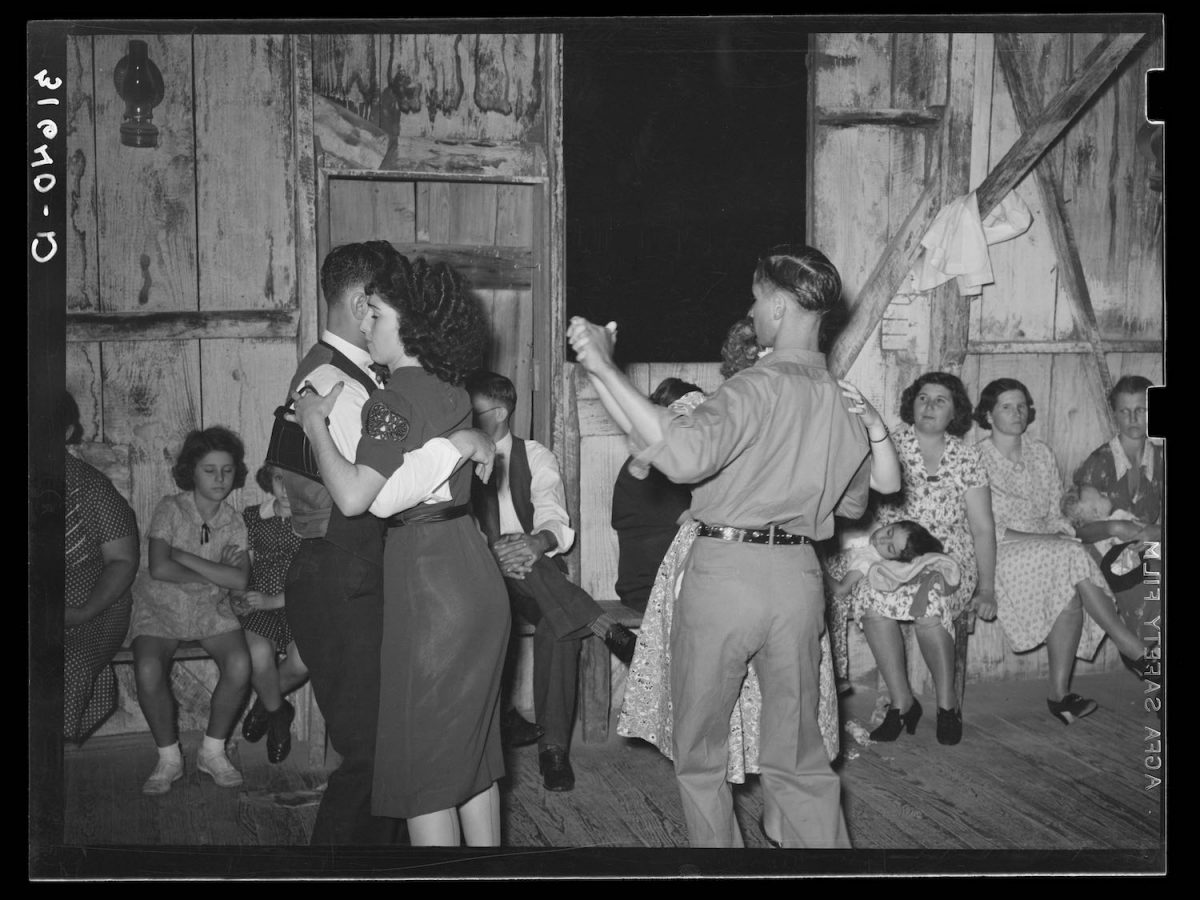
Crowley, Louisiana, October 1938
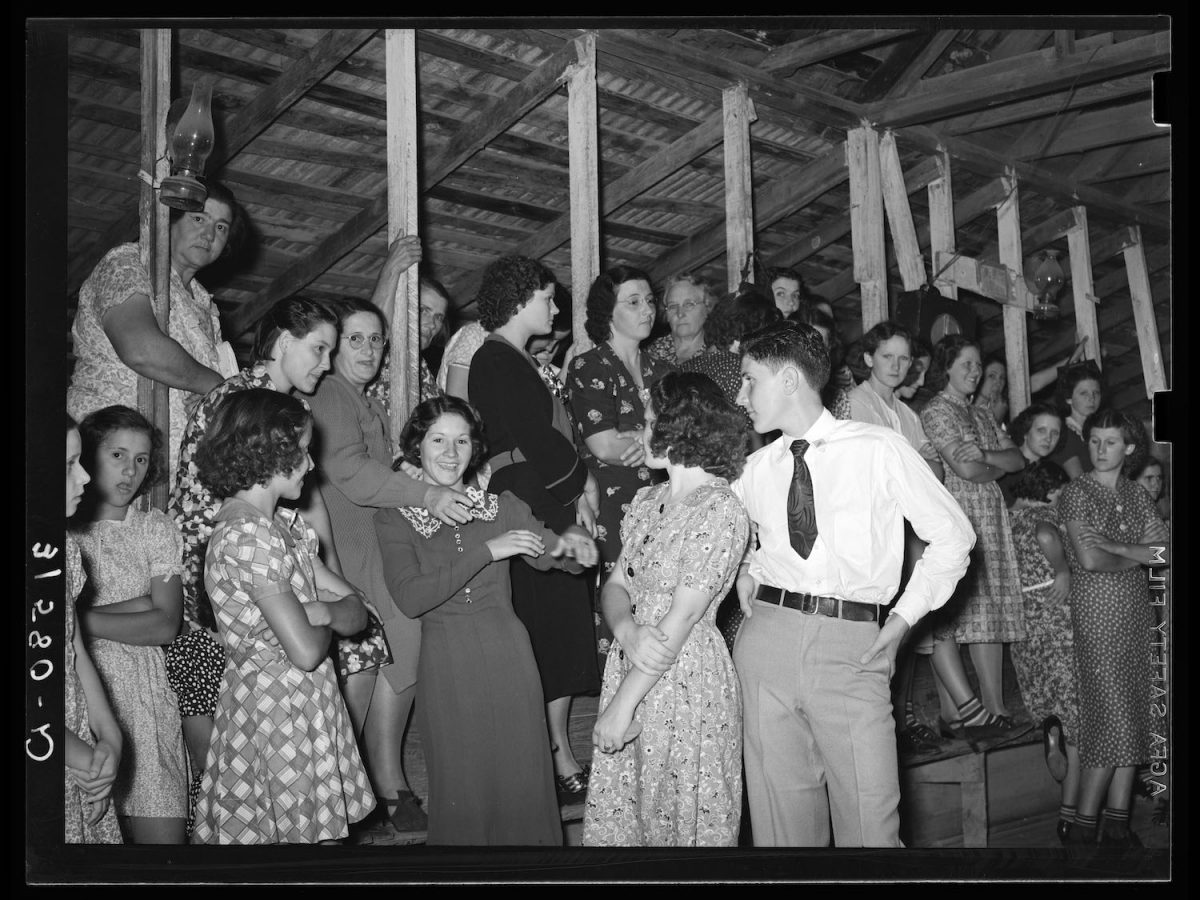
Russell Lee, October 1938
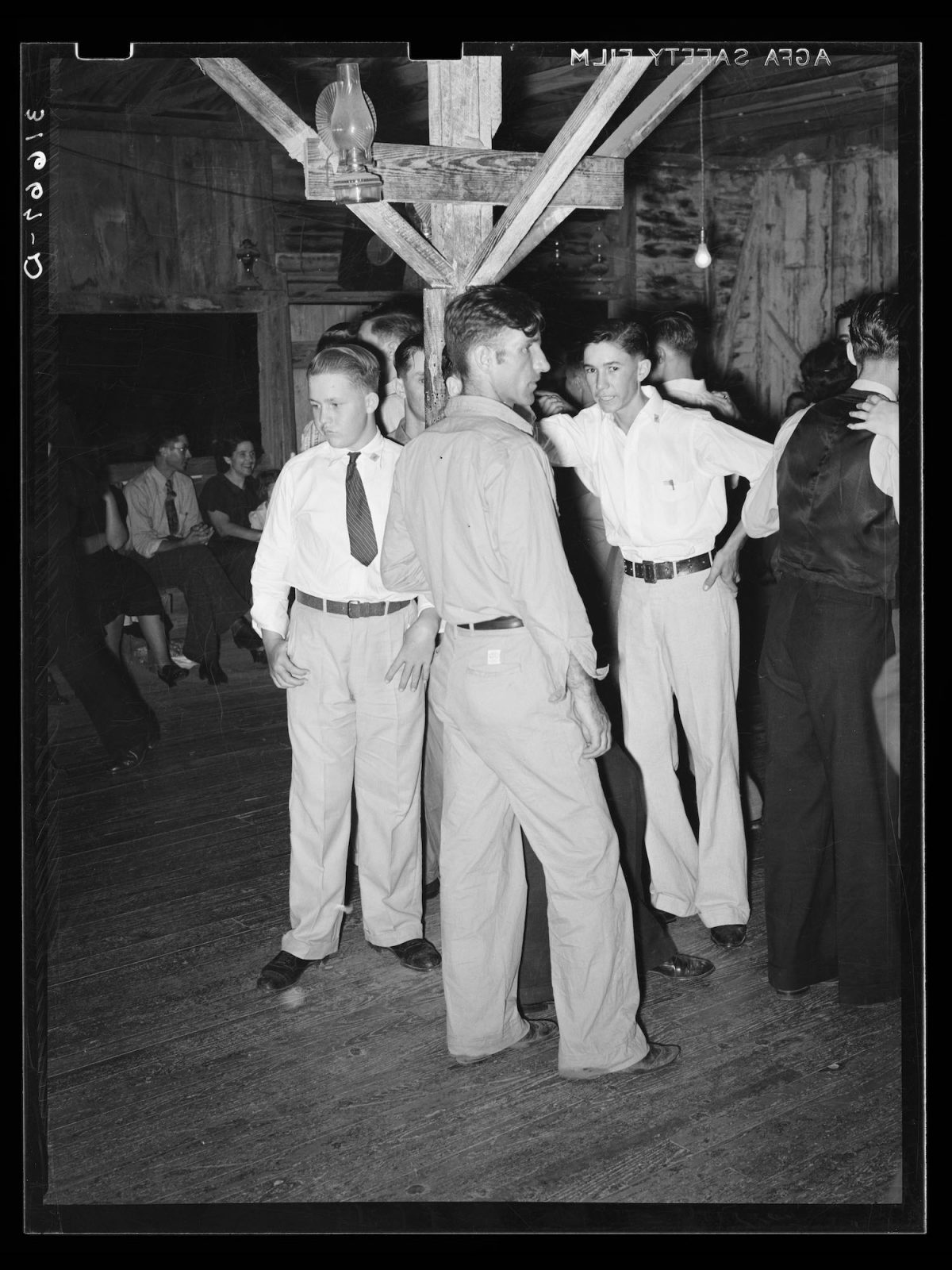
Men congregating in the centre of the hall, Crowley, Louisiana, 1938
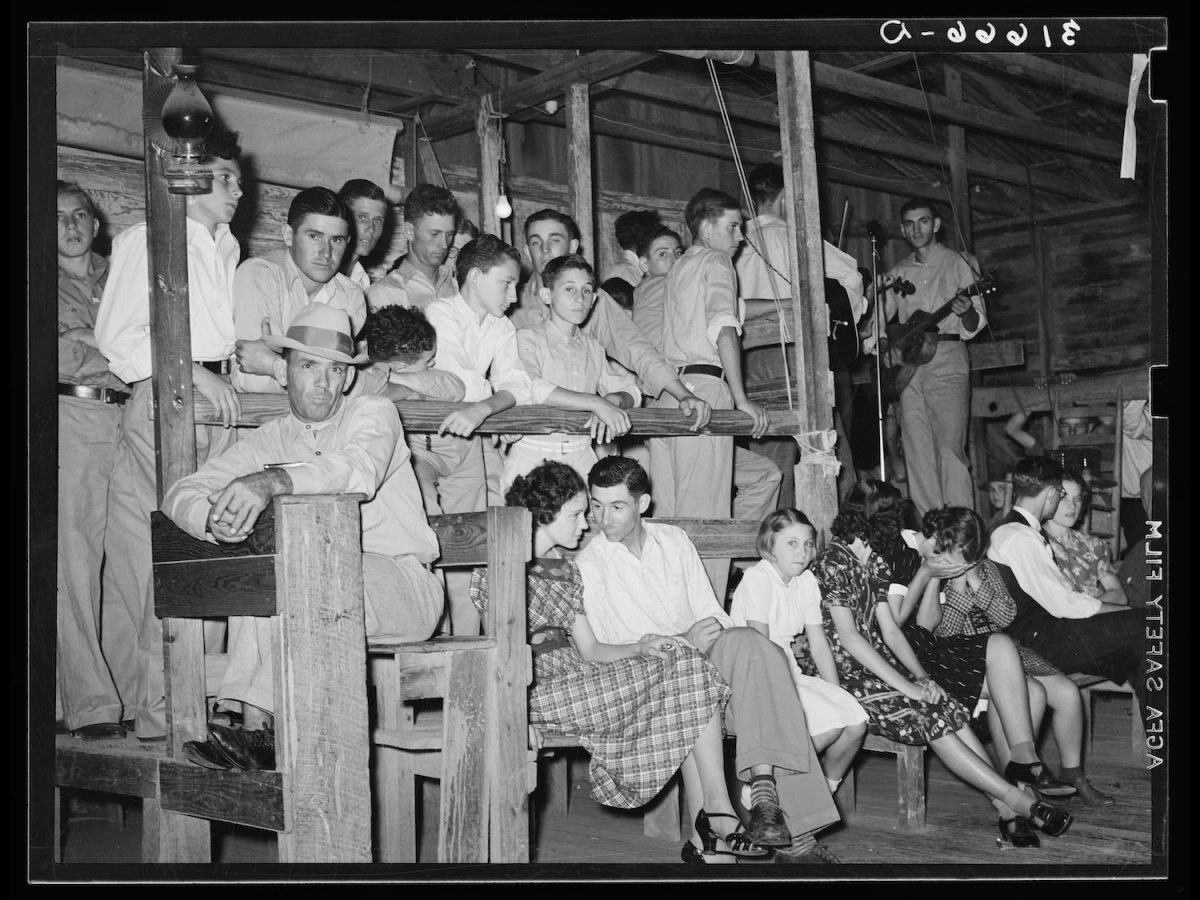
Men’s section at the Fais do-do, Crowley Louisiana, Russell Lee, 1938
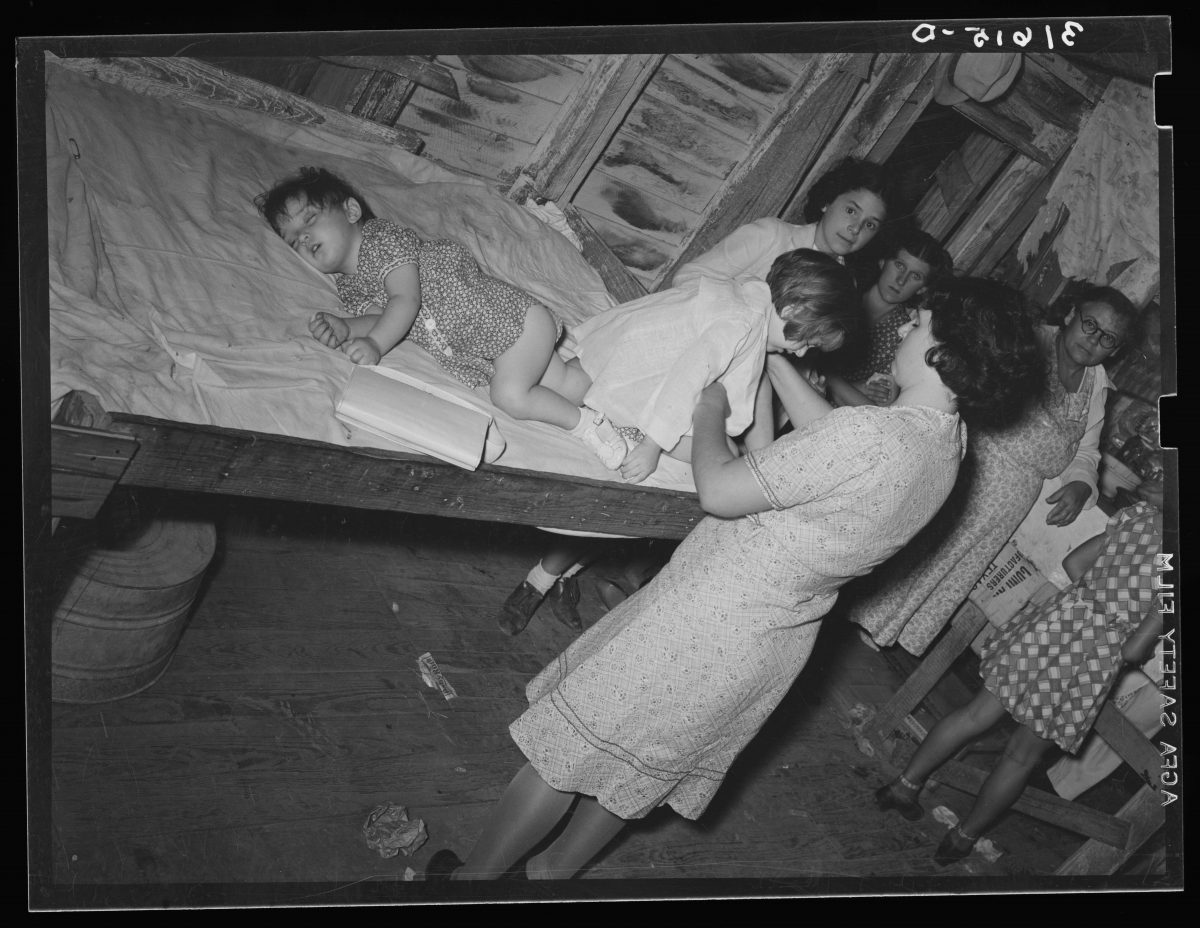
Corner of the dance hall reserved for checking children while the parents dance
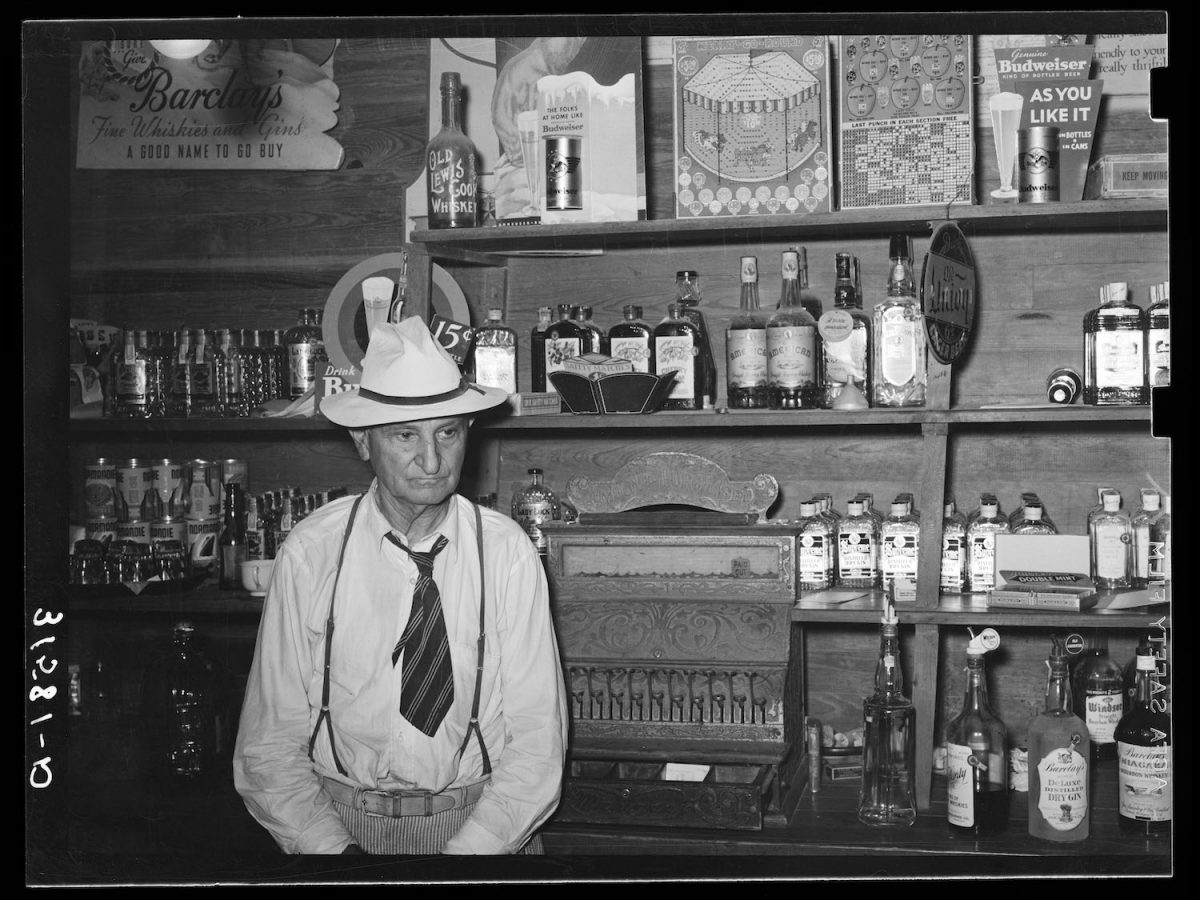
The man behind the bar
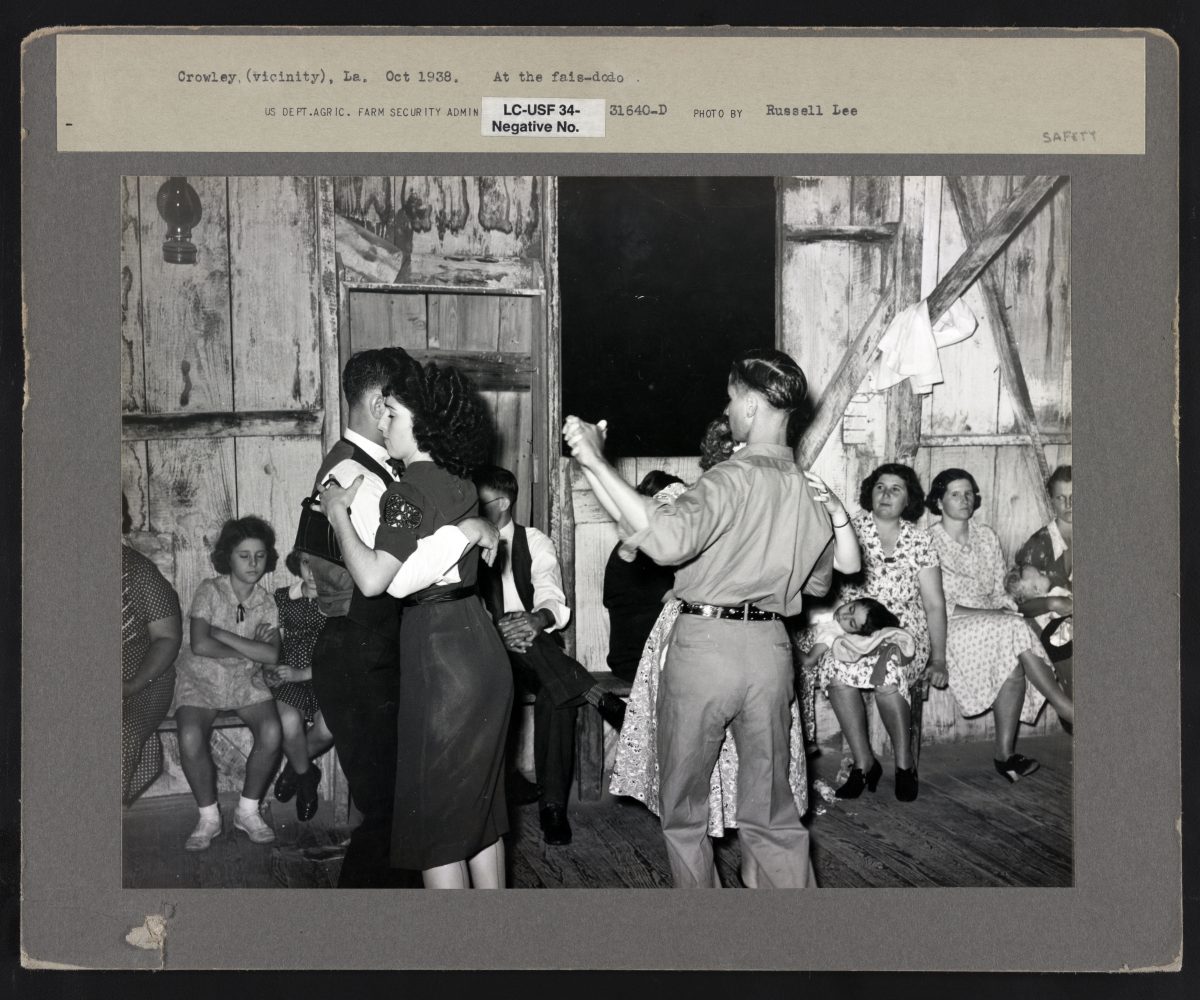
Fais do-do at Crowley, Louisiana, 1938
All available to buy as prints in the shop. See them on sale here.
Would you like to support Flashbak?
Please consider making a donation to our site. We don't want to rely on ads to bring you the best of visual culture. You can also support us by signing up to our Mailing List. And you can also follow us on Facebook, Instagram and Twitter. For great art and culture delivered to your door, visit our shop.
